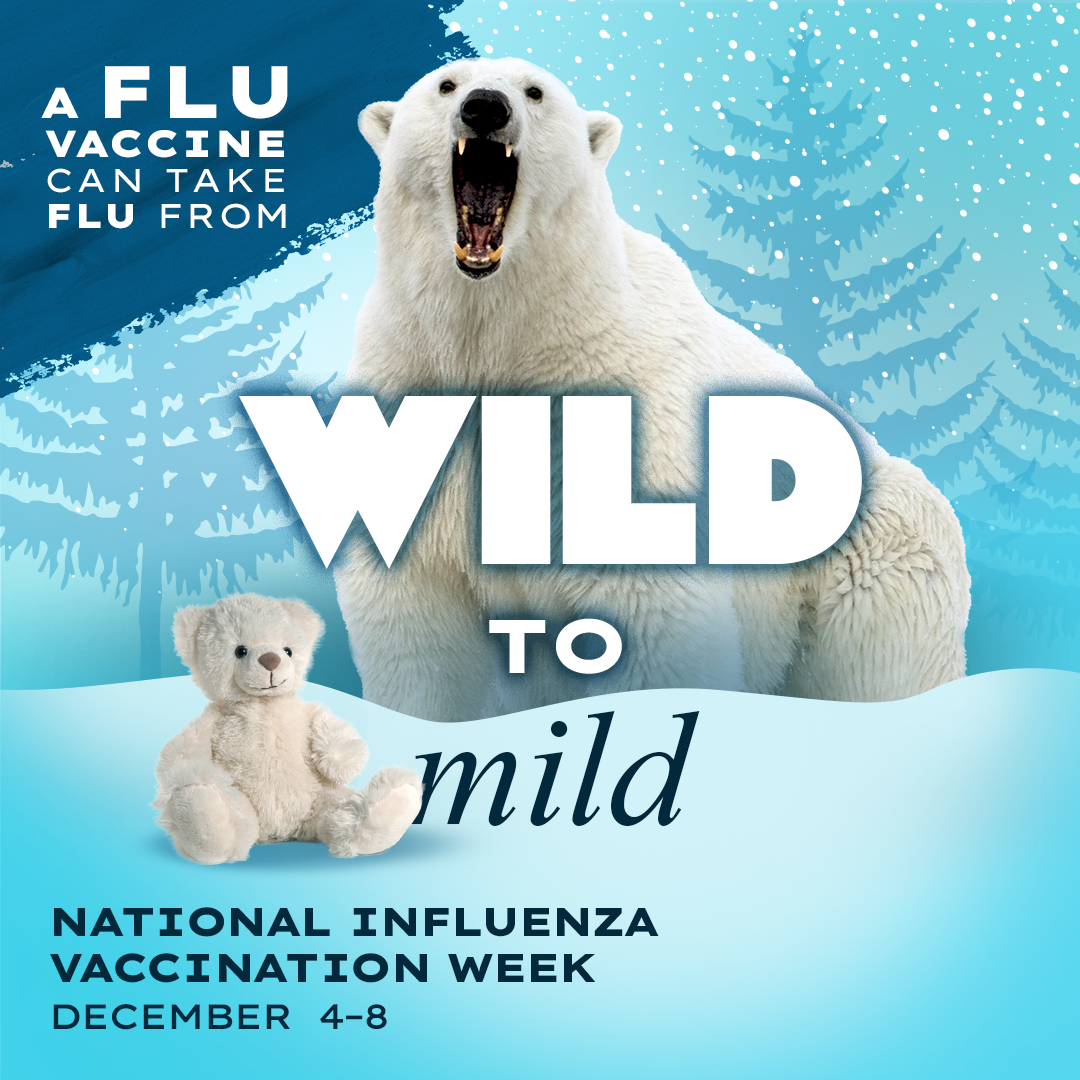National Influenza Vaccination Week, December 4 – 8, is an annual reminder that it’s not too late to get a flu vaccine.
Different flu viruses circulate each year and the protection you get from vaccination decreases over time. Getting a flu vaccine every year is the best way to reduce your risk of getting the flu.
 We are continuing to see an increase in flu-like illnesses in our area and are currently at a high level of respiratory activity in Northern Virginia. The Fairfax Health District is experiencing high levels of influenza-like illness with more visits to emergency departments and urgent care centers for fever (100.4°F or greater) and cough and/or sore throat. Based on Centers for Disease Control and Prevention (CDC) assessments and data since the beginning of the 2023-24 season, influenza activity will likely continue to increase into December and follow similar levels of severity as pre-COVID flu seasons.
We are continuing to see an increase in flu-like illnesses in our area and are currently at a high level of respiratory activity in Northern Virginia. The Fairfax Health District is experiencing high levels of influenza-like illness with more visits to emergency departments and urgent care centers for fever (100.4°F or greater) and cough and/or sore throat. Based on Centers for Disease Control and Prevention (CDC) assessments and data since the beginning of the 2023-24 season, influenza activity will likely continue to increase into December and follow similar levels of severity as pre-COVID flu seasons.
Vaccination remains the best way to protect yourself and loved ones from serious illness caused by flu. If you do get the flu, it can help make your symptoms less severe and reduce the risk that you are hospitalized or even die. Complications of flu can include bacterial pneumonia, ear infections, and sinus infections.
People 6 months and older should get vaccinated against flu. For those who are at greater risk for severe flu complications, it especially important to make time to get a flu vaccine, if you haven’t already. Some examples of people at higher risk of flu complications include:
- People 65 years and older are at higher risk of developing serious complications from flu compared to young, healthy adults. This is in part because of changes in immune defenses with increasing age.
- If you are pregnant, you are at higher risk of potentially serious flu complications because of changes to your immune system, heart, and lungs. Flu may also be harmful for a developing baby.
- Children younger than 5 years old—especially those younger than 2 years—and children with certain chronic health conditions (like asthma and diabetes), are at higher risk of developing potentially serious flu complications. Other children can still get very stick from flu, and they can spread it to people at higher risk.
- People with chronic health conditions, some disabilities, and cancer, are at higher risk of developing potentially serious flu complications, and the flu can worsen these underlying medical conditions.
- Certain groups of people, including certain racial and ethnic minorities, experience an unequal burden of severe flu outcomes. Long standing social and health inequities likely contribute to this. Learn more about Health Equity and Flu.
Find more information so you can take steps to prevent flu:
- See more information about flu vaccines this season.
- Find flu vaccine near you at vaccines.gov.
- Learn about more ways to prevent flu and other respiratory viruses.

